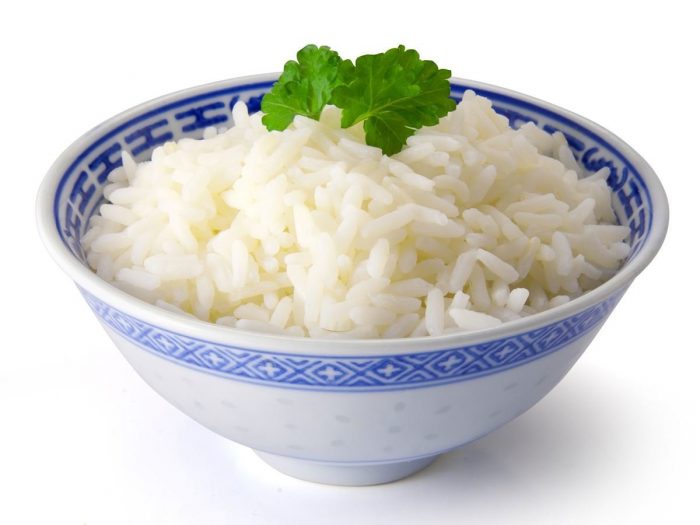The various benefits of rice can be found in more than forty thousand varieties of this cereal that is available throughout the world. The two main categories are whole grain rice and white rice. Whole grain rice is not processed very much, so it is high in nutritional value, whereas white rice is processed so that the bran or outer covering is removed, leaving it with less nutritional value. People choose different styles of rice for particular flavors, depending on their culinary needs, the availability, and the potential for healthy benefits as well!
Health benefits
Great Source of Energy: Since rice is abundant in carbohydrates, it acts as fuel for the body and aids in the normal functioning of the brain. Carbohydrates are essential to be metabolized by the body and turned into functional, usable energy. The vitamins, minerals, and various organic components increase the functioning and metabolic activity of all your organ systems, which further increases energy levels.
Blood Pressure Management: Rice is low in sodium, so it is considered one of the best foods for those suffering from high blood pressure and hypertension. Sodium can cause veins and arteries to constrict, increasing the stress and strain on the cardiovascular system as the blood pressure increases. This is also associated with heart conditions like atherosclerosis, heart attacks, and strokes, so avoiding excess sodium is always a good idea.Skin care: Medical experts say that powdered rice can be applied topically to cure certain skin ailments. On the Indian subcontinent, rice water is readily prescribed by ayurvedic practitioners as an effective ointment to cool off inflamed skin surfaces. The phenolic compounds that are found in rice, particularly in brown or wild rice, have anti-inflammatory properties, so they are also good for soothing irritation and redness. Whether consumed or topically applied, substance derived from rice tend to relieve a number of skin conditions. The antioxidant capacity also helps delay the appearance of wrinkles and other premature signs of aging that can affect the skin.
Health benefits
Cholesterol Free: Eating rice is extremely beneficial for your health, simply because it does not contain harmful fats, cholesterol or sodium. It forms an integral part of balanced diet. Any food that can provide nutrients without having any negative impacts on health is a bonus! Low levels of fat, cholesterol, and sodium will also help reduce obesity and the health conditions associated with being overweight. Rice is one of the most widely used and eaten foods in the world because it can keep people healthy and alive, even in very small quantities.


Blood Pressure Management: Rice is low in sodium, so it is considered one of the best foods for those suffering from high blood pressure and hypertension. Sodium can cause veins and arteries to constrict, increasing the stress and strain on the cardiovascular system as the blood pressure increases. This is also associated with heart conditions like atherosclerosis, heart attacks, and strokes, so avoiding excess sodium is always a good idea.Skin care: Medical experts say that powdered rice can be applied topically to cure certain skin ailments. On the Indian subcontinent, rice water is readily prescribed by ayurvedic practitioners as an effective ointment to cool off inflamed skin surfaces. The phenolic compounds that are found in rice, particularly in brown or wild rice, have anti-inflammatory properties, so they are also good for soothing irritation and redness. Whether consumed or topically applied, substance derived from rice tend to relieve a number of skin conditions. The antioxidant capacity also helps delay the appearance of wrinkles and other premature signs of aging that can affect the skin.
Alzheimer’s Disease: Brown rice is said to contain high levels of nutrients that stimulate the growth and activity of neurotransmitters, subsequently helping to prevent Alzheimer’s disease to a considerable extent. Various species of wild rice have been shown to stimulate neuroprotective enzymes in the brain, which inhibit the effects of free radicals and other dangerous toxins that can cause dementia and Alzheimer’s disease.
Diuretic and Digestive Qualities: The husk part of rice is considered to be an effective medicine to treat dysentery, and some people say that a three month old rice plant’s husks are said to have diuretic properties. Chinese people believe that rice considerably increases appetite, cures stomach ailments and reduces all digestive problems. As a diuretic, rice husk can help you lose excess water weight, eliminate toxins from the body like uric acid, and even lose weight, since approximately 4% of urine is actually made up of body fat! The high fiber content also increases bowel movement regularity and protects against various types of cancer, as well as reducing the chances of cardiovascular diseases.
For more information please visit website: www.organicfacts.net





No comments:
Post a Comment